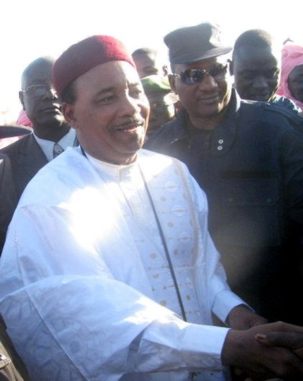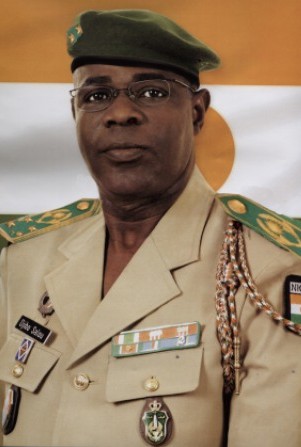|
Niger Politics Democracy in action in Niger
General Salou Djibo, in power since a February 2010 coup, has led the country safely through a democratic transition period including the ample participation of civil society. Today, neither he nor any other military leader stands candidate.
While Mr Tandja is in prison, many of his earlier party's followers have flocked around presidential candidates Seini Oumarou and Hama Amadou. Both had been Prime Ministers under Mr Tandja's rule, but have since them distanced themselves from the ex-President's authoritarian tendencies. There are ten candidates to take over the presidential offices in Niamey. The most mentioned favourite is Mahamadou Issoufou, who was the main opposition leader in the Tandja era and plaid a vital role in mobilising Nigeriens against the old regime's anti-democratic tendencies. Niger voters were also electing a national parliament today. The new parliament will have greater powers with the new constitution in place, to some degree being able to check the President's powers. At the beginning of the Tandja era, Niger was experiencing a large degree of freedom and was developing into a firm democracy. Otherwise mostly referred to as an impoverished country periodically haunted by drought and famine, Nigeriens took great pride in their democratic institutions. There was therefore a great popular support for the outgoing military junta as it became clear that the democratic transition was seriously meant. General Djibo has become a popular man in Niger, and nobody would be surprised if the transitional leader is urged to stand candidate in some coming Nigerien election. But for now, a civilian will be taking over power in Niger. CENI expects to be able to present its results within one week. By staff writers © afrol News - Create an e-mail alert for Niger news - Create an e-mail alert for Politics news
On the Afrol News front page now
|
front page
| news
| countries
| archive
| currencies
| news alerts login
| about afrol News
| contact
| advertise
| español
©
afrol News.
Reproducing or buying afrol News' articles.
You can contact us at mail@afrol.com









